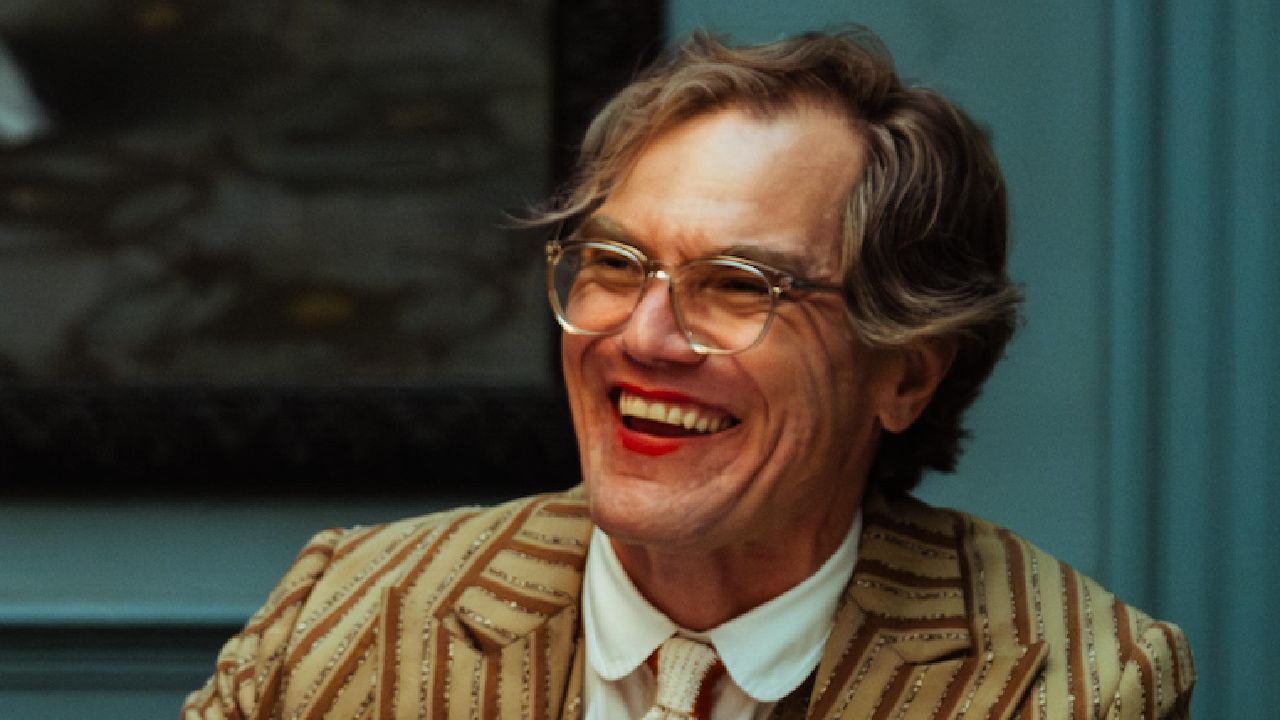
Michael Shannon in ‘The End’. Photo: Mubi.
Opening in theaters on December 6th in limited release is ‘The End,’ directed by Joshua Oppenheimer (‘The Act of Killing’), and starring Michael Shannon, Tilda Swinton, George MacKay, and Moses Ingram.
Moviefone recently had the pleasure of speaking with Michael Shannon about his work in the film, in which he plays the patriarch of a well-off family who have retreated to a luxurious underground bunker after climate change has brought about the end of human civilization.
Shannon’s character, simply known as ‘Father,’ may have contributed to the collapse of the Earth’s ecosystem as head of a fossil fuel conglomerate. Despite its bleak subject matter, ‘The End’ is a full-blown musical featuring 13 original songs all performed by the members of the cast.
Related Article: Filmmaker Jeff Nichols Talks ‘The Bikeriders’ Digital Release
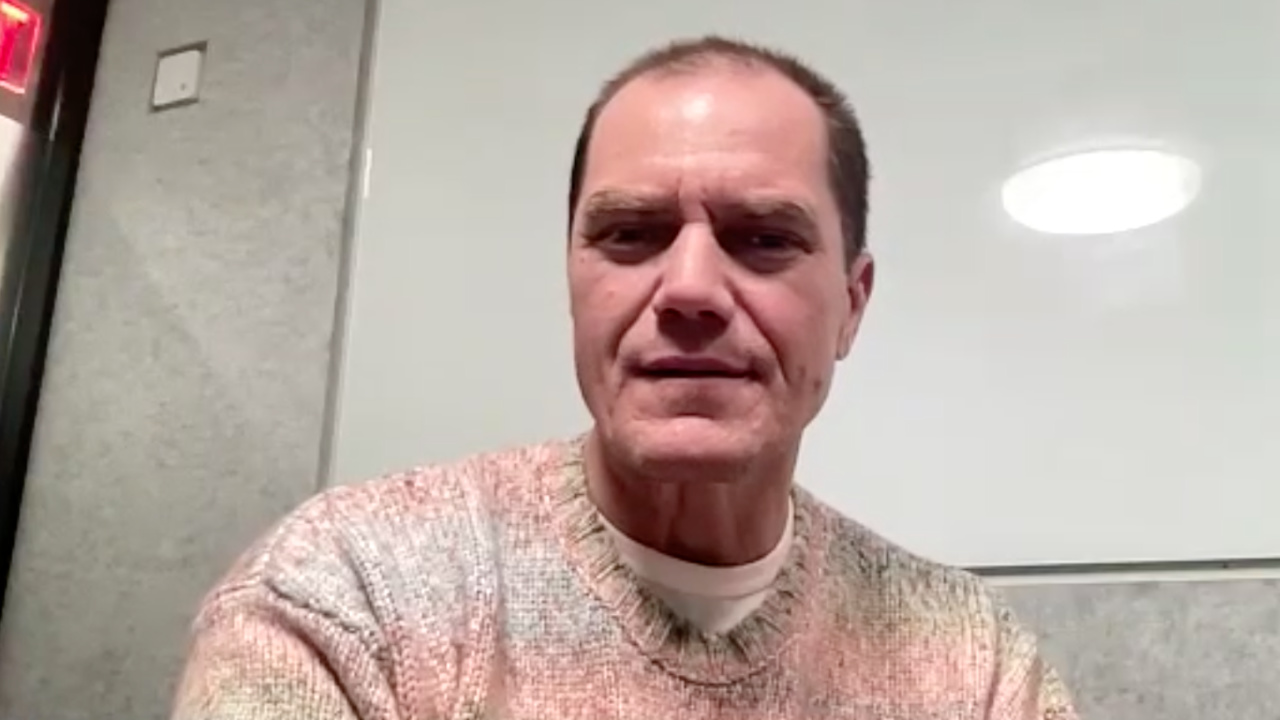
Michael Shannon talks ‘The End’. Photo: Mubi.
Moviefone: Had you seen Joshua’s two documentaries [‘The Act of Killing’ and ‘The Look of Silence,’ both about the mass murder of Indonesian citizens by a brutal far-right regime in the mid-1960s] and having seen those, was finding out what he wanted to do with this kind of a curveball in a way?
Michael Shannon: When I first met with Josh, I had not seen the documentaries. I had heard about them, they’re rather legendary, but I hadn’t actually seen them. So I had a pretty fresh palette going into it. All I had to go on was our conversation and then reading the script. But after I signed on, I watched both of the films, and found them exquisite and painful and all the things that everybody else probably has, and I didn’t really find it to be a curveball. Josh talks about these three films, ‘The Act of Killing,’ ‘Look of Silence,’ and ‘The End’ as being a triptych. He actually got the idea to make ‘The End’ based on the time that he spent in Southeast Asia and meeting a wealthy entrepreneur who was building an underground bunker. So I guess he could have made a documentary about that guy, I don’t know. But he decided instead to make his first narrative film.
MF: What was your reaction reading the script and learning that it was a musical combined with a post-apocalyptic drama?
MS: I was thrilled. I am really disinterested in doing something that’s been done before. I think there’s probably too many movies and TV shows in general, and that people spend too much time watching them. But if you’re going to go through the trouble of making something — and it is trouble, trust me, because he devoted years of his life to making this movie. It wasn’t easy, and it took a small village to get the thing financed. But if you’re going to go through all that, then you better make something that’s unique, and I definitely feel like he’s accomplished that.
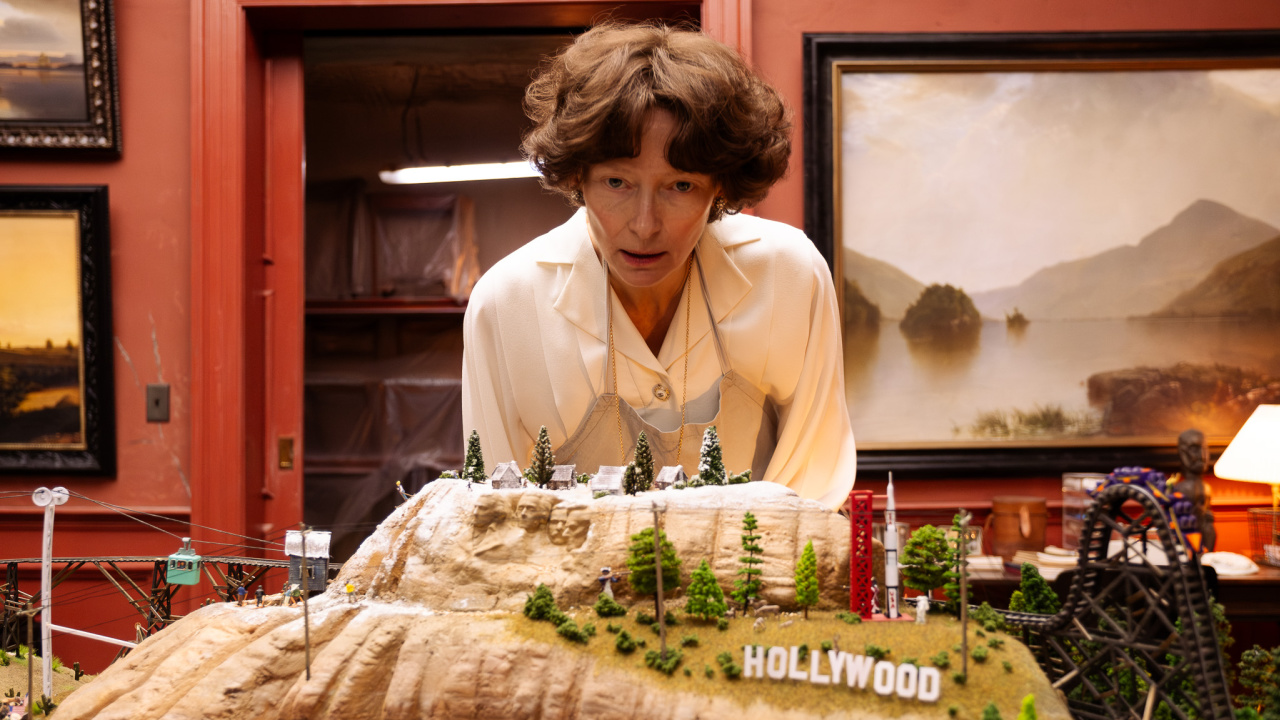
Tilda Swinton in ‘The End’. Photo: Mubi.
MF: When you do look at a script, do you have an immediate reaction? Do you have to keep turning the pages, and become aware that you want to be involved in it, or on the other hand, do you read 10 pages and are like, “No, this is not for me”?
MS: Yeah, it’s pretty quick. I don’t like reading screenplays anyway. I don’t know when that happened — it used to be that when anybody thought to send me a screenplay, I was overwhelmingly excited to see it. But I guess just through the years as you read stacks and stacks of them, they become less and less appealing. But yeah, you usually know pretty quick. But this film is about things that are really important to me, and I could tell that basically from the get-go. So this was a very easy script for me to get through.
MF: Do you see a parallel with the story in ‘The End’ to the political moment that we’re in now?
MS: A parallel? Well, it’s interesting, because I guess that’s where your mind is inclined to head, but it’s important to remember that this problem existed before Trump was elected. Even if Kamala Harris got elected or Jill Stein or whoever, it’s been a problem. It’s been a problem since the ‘60s, we’ve known about this for decades and we haven’t done enough to fix it or solve it because, frankly, we’re delusional. Not everybody on an individual basis is delusional. There are a lot of people that are aware of the problem and want to do something about it as individuals, but as a society, I feel like within the United States, there are all different kinds of people obviously, but the United States of America as a country, as a collective country, is mentally ill. It’s like a crazy person that needs treatment, and I don’t know who’s going to give us this treatment. I’m pretty sure it won’t be Donald Trump, but we need some serious time away in a clinic somewhere with a bunch of people saying, “Let’s get to the bottom of this, because you’re clearly very dysfunctional.”
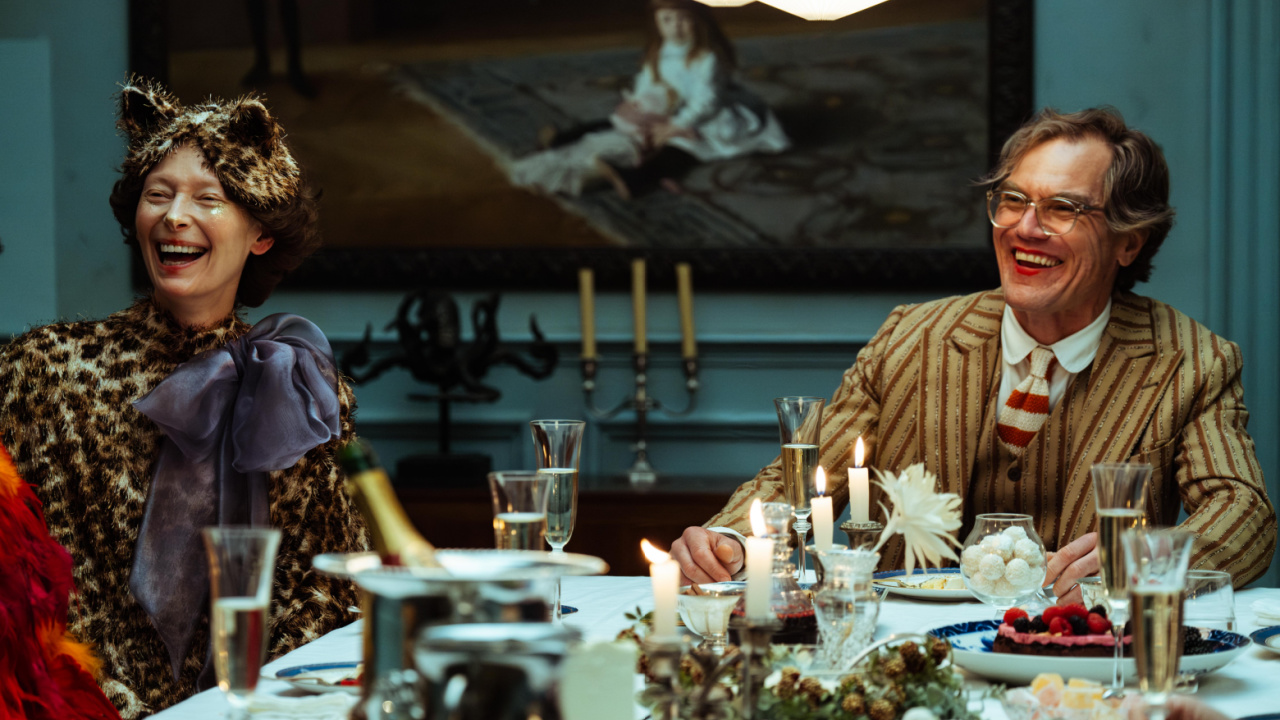
(L to R) Tilda Swinton and Michael Shannon in ‘The End’. Photo: Mubi.
MF: Father starts off as kind of empathetic and congenial, and then you learn more about him and his dark side starts to come out. What was your approach to playing him?
MS: Of course he’s congenial, that’s how he got through life. I don’t think many people get to be CEOs or run corporate entities by being complete dickheads. Charm is the name of the game. Is he a sociopath? I don’t know. Sociopaths are very charming. I do believe that he does have a sense of morality ultimately, that he’s not a sociopath per se. But I thought about it, the potential or the possibility for it. But I think ultimately he’s just a man dealing with a profound amount of guilt, which I can relate to. I think guilt is a pretty universal feeling, I would hope. I don’t want people to be afflicted by it, but there are some things, like I mentioned earlier, that perhaps people should have a small amount of guilty feelings about. But I think what you see in the process of the film and the process of the story is a reawakening in him. It starts with Son inspiring him to really try and remember how he and Mother met, and it’s like a thawing of sorts. Like in order to cope with this experience that they’re having, he’s created this persona that he’s perpetuating just out of survival mode, but it’s not actually who he is if he really stops to think about it. But that’s the thing, in the aquarium that they’re all stuck in, self-examination can be a very dangerous thing. You would think, “Oh, I have all this time now, I am just going to get to know myself, and journal and all these things.” But that can lead you to some dark corners or some questions that you don’t know how to answer, and I feel like that’s what happens to Father in the movie.
MF: You’ve sang onstage in a band, but this is the first time that you’ve sang on film, correct?
MS: Well, I did a miniseries called ‘George and Tammy,’ where I played George Jones, and I sang quite a bit in that. But in terms of cinema, yeah, it’s been a long road, but yes, I don’t think I’ve sang in a movie before.
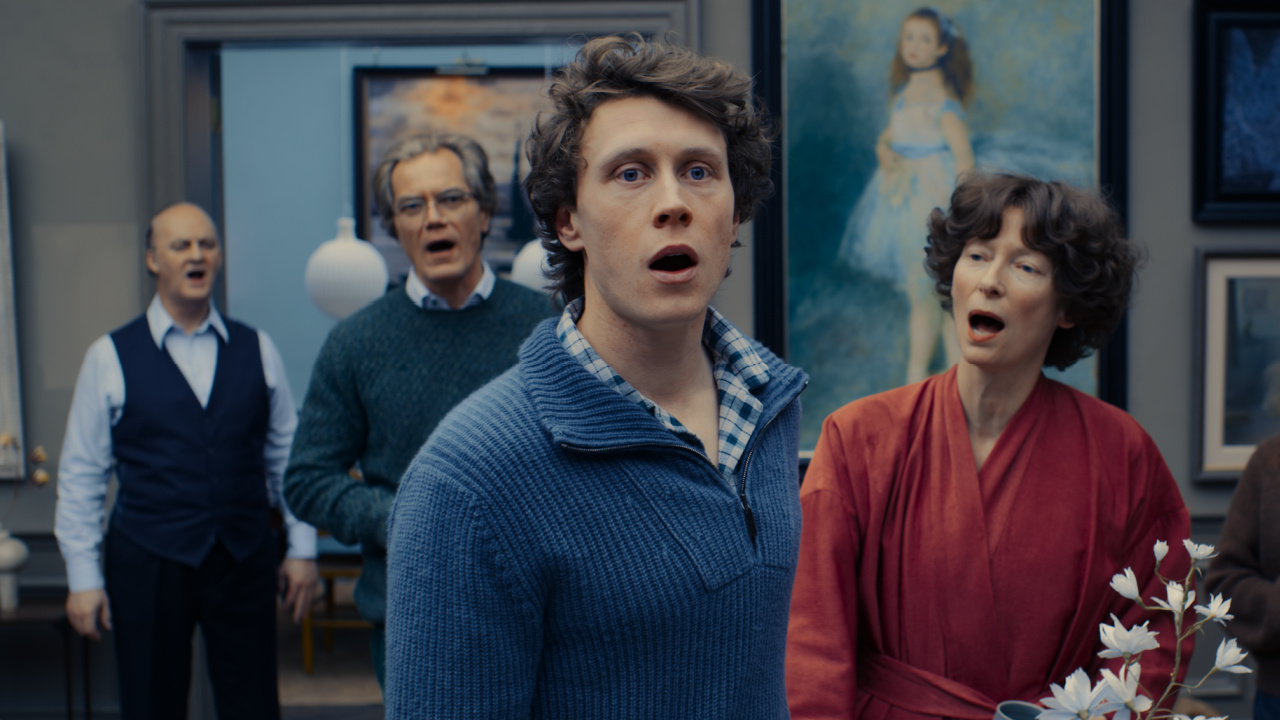
(L to R) Michael Shannon, George MacKay and Tilda Swinton in ‘The End’. Photo: Mubi.
MF: The cast sang mostly live on set. Was that a challenge in any way?
MS: Well, we rehearsed quite a bit before we started filming, we had three weeks of intensive singing rehearsals and a little bit of dancing rehearsals, and also table work with the script, blocking the scenes. The challenging part about a lot of the musical numbers that involved the whole group is that Josh had something very specific in mind about how he wanted it to move and flow and look. It’s always hard when you’ve got an ensemble of people all in frame at the same time and camera movement and all that. Some of those shots took a lot of takes to get them just the way that Josh saw them in his head.
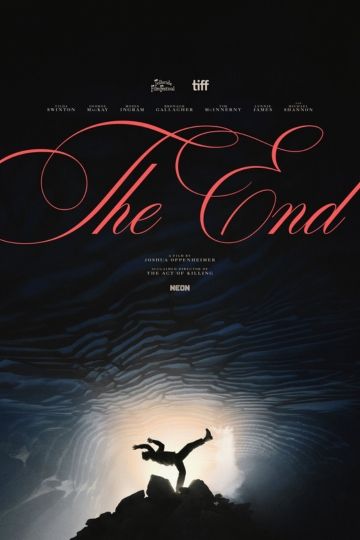
After the sudden arrival of a stranger threatens the family’s luxurious compound deep underground, Son begins to question their seemingly perfect existence. Read the Plot
What is the plot of ‘The End’?
A wealthy family has lived in a vast underground bunker for 20 years while the world above has become uninhabitable and humankind has all but gone extinct. Their carefully controlled life and routines are disrupted by the arrival of a young woman from above who leads them to question everything.
Who is in the cast of ‘The End’?
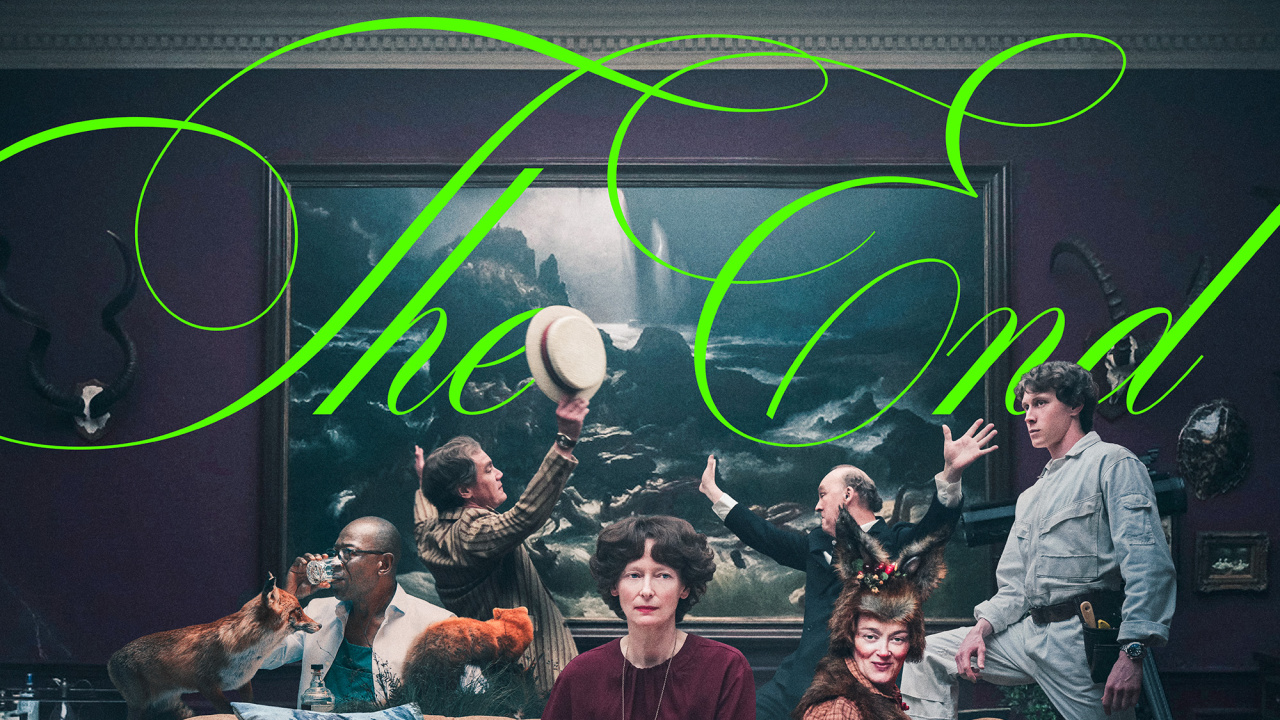
‘The End’ opens in theaters on December 6th.
List of Michael Shannon Movies and TV Shows:
Buy Tickets: ‘The End’ Movie Showtimes
Buy Michael Shannon Movies On Amazon

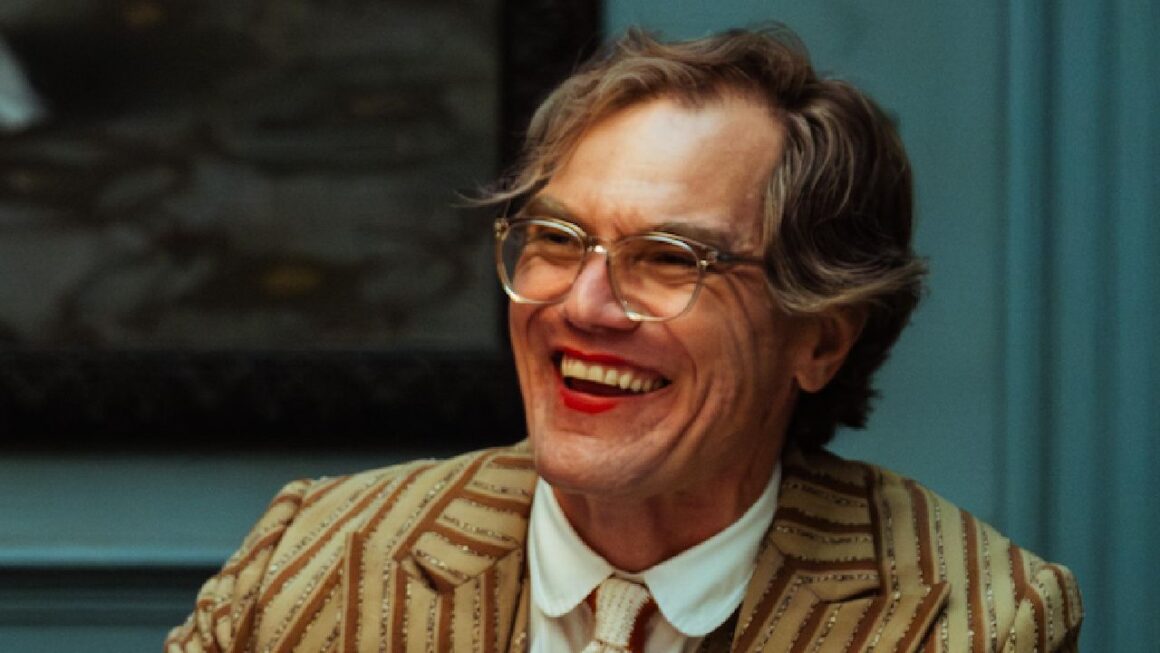
Leave a Reply